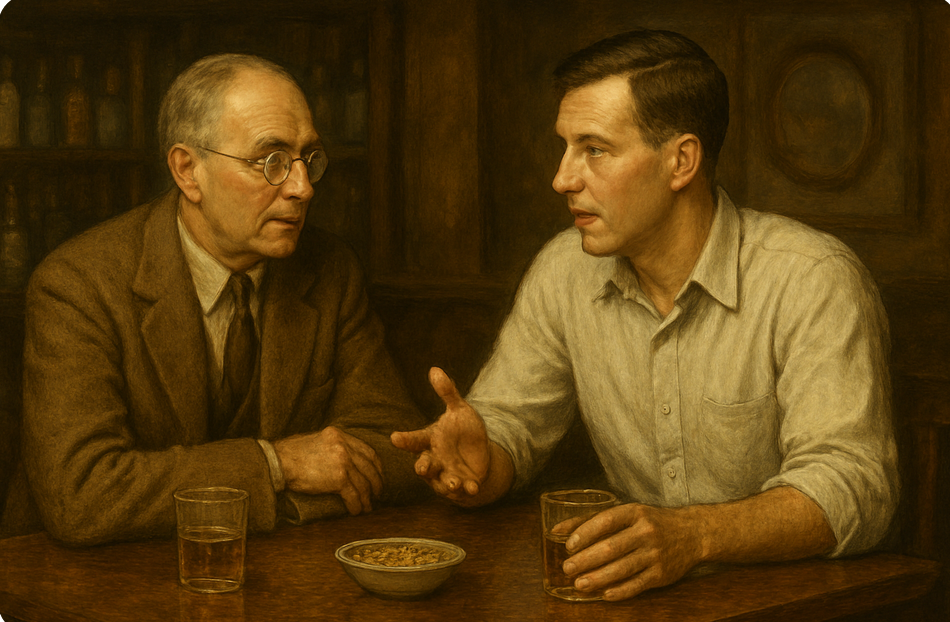Two Kinds of Minds. A historian and a mathematician walk into a bar. The two kinds of minds order two kinds of drinks. The historian has a mainly remembering mind. The mathematician has a predominantly reasoning mind. The Remembering Mind and the Reasoning Mind. I saw both kinds at Yale. Most people there were very good at both, but you could tell what a person's dominant talent was. Those who were extraordinary at one sort of mental function often seemed not quite as good at the other. Some could be extreme at one and almost poor at the other.
There's a famous story about the Hungarian mathematician Eugene Wigner visiting Harvard. He was at the Cambridge post office hunched over a table addressing a letter. Suddenly, he started staring at the envelope. "Come on, come on, come on," he muttered. He jerked the envelope up off the table and began pacing in short steps back and forth, muttering and hitting himself on the forehead with the envelope. A Harvard grad student approached the obviously agitated genius and said, "May I be of assistance, Professor Wigner?" The man looked thunderstruck and said, "Yes! Wigner!" And he wrote the return address. If you doubt this story, go to your local university math department at the end of the day and watch them look for their cars.
Let's postulate a third sort of mind, a revolutionary in his or her field, an innovator, an unusually creative thinker. Let's call that the Reinventing Mind. I suspect that to be one of those, you have to have a decent Remembering Mind, but an excellent Reasoning Mind, in the capacity of spotting patterns, real and possible.
I've known CEOs of huge companies, with a hundred thousand or a quarter million employees, and was always amazed at their recall concerning all the divisions, departments, and developments in their vast enterprise. The moving parts of a huge organization would defeat most of us. And those corporate leaders with a keen intellect tend to go deeper than most people in their probing and understanding of most of their business problems. Where the front line guys might understand things on a level one or two, and their managers on a level two or three, the top CEOs will grasp those things on a level four or five. The rare revolutionaries may dive down to a level ten. And I'd always recognize them as kindred spirits.
As the sort of philosopher I am, I have to live at a level five to ten most of the time at least in my work, and I do deep dives down to fifteen or twenty. Few accompany me there. When someone does, I always benefit from the partnership. But when I resurface, I try to make the results available at more accessible levels. I may not be as bad as Wigner with people's names or my own, but I share his Reasoning Mind and have to work hard to cultivate the Remembering side of my own mind. We all have strengths and weaknesses. No one type of mind is better than another in its orientation. Without my historian friends, I'd have a lot less to reason about, and reinventing would not be as available. You have to know and understand what was and is in order to create a better can be. That's what's wrong with our current politics. There are far too many in office at every level who have not cultivated either their Remembering Mind or their Reasoning Mind, and so don't get the Reinventing we need, just destruction. And I was going to make one more point but now can't recall it. What were we discussing?












